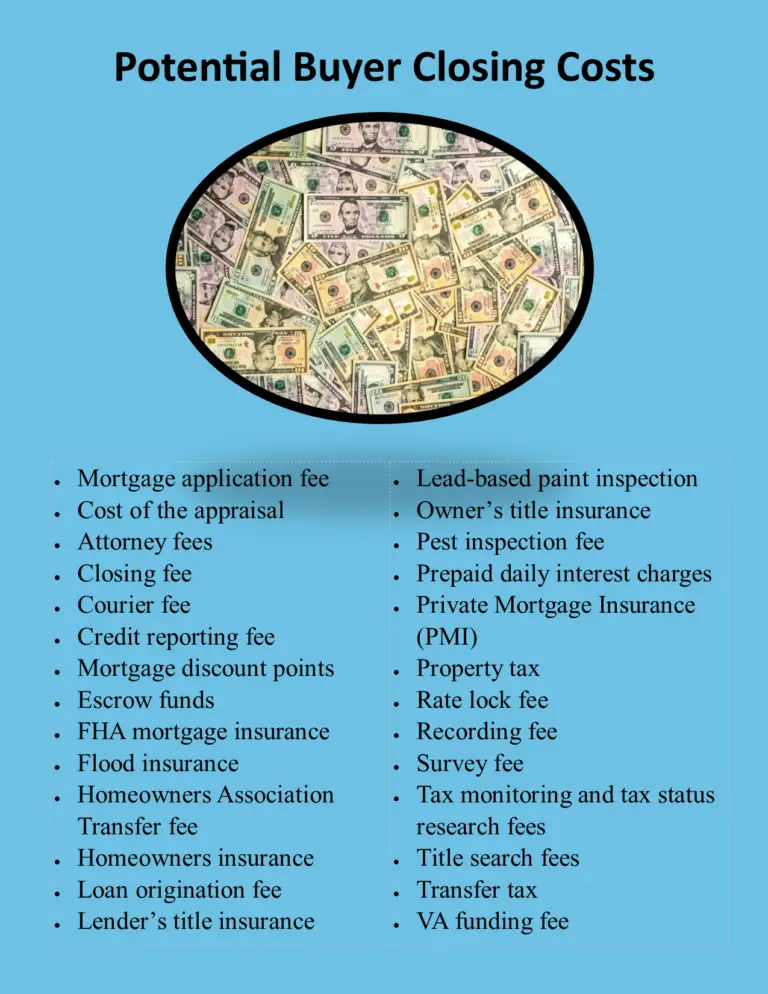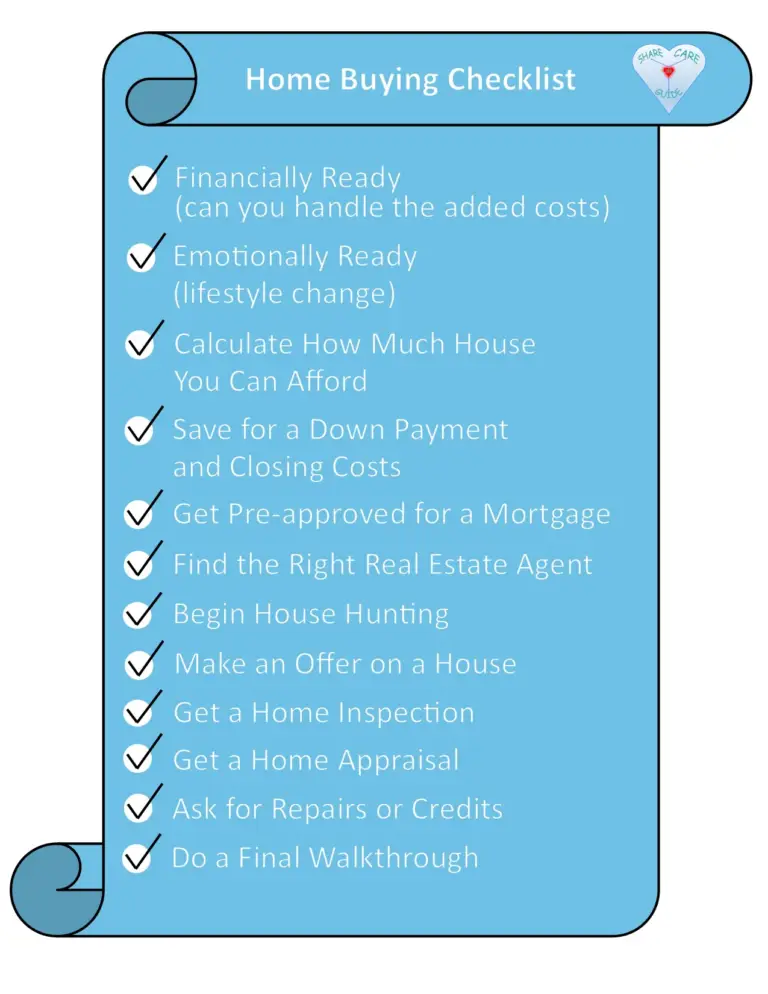
Hi! I’m Paul – a retired IT professional who cares about helping others through my life’s array of experiences. To learn more about me, read my bio. Thanks!
Need a New House? Read About My Eye-opening Experiences
Many people dream of owning a home. I know I did. There is a lot involved and can be very confusing and frustrating. With the grace of God, I was able to have three homes in my lifetime, so far. Everyone’s real estate experience will not be the same and some will have more stress during the process than others. This post is going to outline the buying process. I will share, through my experience, what it is like to buy a home. Included are tools to help you prepare as much as possible to go through the process.
On average, people own three homes in their lifetime in one form or another. The average age of a first-time buyer is 36 according to the National Association of Realtors (NAR) for 2022. For many, most of your adult life will have some taste of home ownership. This post will provide what you need and the guidance to ease you through buying your home.
What Does It Mean to Own a Home?
Owning a home is different for everyone. For some, it is a lifelong dream. Others use the purchase of real estate as an investment and tax write-off. You can have your dream with the picket fence, landscaped property, and a pool. And you can also have the investment. There is nothing to say you cannot have both. But what is a good home? It is easy to assume the vision of a home is the same for everyone. Most likely it isn’t. People’s vision of a home can be:
- Full sized house with many bedrooms, living room, kitchen, den and basement. Garage included of course.
- A small single bedroom house on a small lot with the essentials like bathroom, living room, kitchen.
- Co-op, condo or apartment with one or several rooms.
- Any size house to fix up and re-sell (flip).
As you can see, it is subjective and can vary. Some want the one, two or three car garage and green yard while others prefer the cement yard. You get the idea.
Buying a House is Not the Same for Everyone
There is a difference between a first and second-time home buyer. The key difference is real estate experience. First-time buyers do not know what to look for when buying a house. They lack personal experience. I am sure they are getting a lot of advice from others. But they have never experienced the process themselves. The person who has bought a house before knows many of the things to look for when shopping around besides the steps involved. Either way, buying a home is a tedious and demanding process. It can be very stressful as well and not always the same experience for everyone.
Here are some tips for a first-time buyer.
Buy a House In-state or Out-of-state?
Generally speaking, real estate is a state-specific industry. Some of the rules and laws for buying a home vary by state. Since the cost of living differs state to state, it is important to find out what the cost of living is for where you want to move. This includes utilities, food, entertainment, and more. Understanding your budget and being pre-approved for a home will help you determine what houses you can afford. The cost of living, house prices in the area you want to live, and style of houses all go into what you can afford.

Find some tips for buying out-of-state in these articles. Although, many of these tips can apply in-state as well.
- Tips For Buying A House Out Of State
- How to Buy a House in Another State? Buying a House Out of State Tips
- Buying a Home
Do You Need a Real Estate Attorney to Buy a House?
The state you are moving to determines those involved in real estate transactions. A lot of east coast states need an attorney to close a home sale while others want you to have a lawyer for the entire process. Still, there are others that are only needed for document preparation purposes. Your real estate agent, assuming you are using one, can guide you on the process for the state where you buy.

In my experience, I purchased three homes. Two were in the state I live and the third for an out-of-state house. The two in-state purchases, in New York, required an attorney for the purchase. The third real estate transaction did not need one, in Western Virginia. For this the realtor handled everything. Being used to New York’s process, I consulted with a Virginia attorney so I felt comfortable with the process. I wanted to know what to expect and confirm what I was being told by my realtor. I recommend doing this no matter where you are buying. The consultation is usually free and can be a phone conversation.
Why Am I Not Allowed to Execute My Plan?
With or without a real estate attorney, before you put money down, please understand the following:
- Zoning laws – can you work from your house?
- Building codes – is the shed you want to build too big?
- Property lines – do you need to be completely accurate when putting up a fence?
- Parking restrictions – can you park on the street at night or have a boat or trailer on your property?
- Livestock laws – can you have chickens, for example?
Explain your plans to your realtor. He or she should be well versed or could find out if you can execute your plans. You do not want to buy the house and find out afterwards that you cannot do what you want. See this article for more information.
Ways to Buy a House
It does not matter if you are a first-time home buyer or you are looking for your second or third real estate transaction, or a summer home. No matter how you buy a house or finding an apartment, know that it takes time. Very rarely will you walk into a house or apartment and fall in love with it. You definitely need to look at a few places so you can compare them and pick the one you want.
To give this process the attention it needs, allow a decent amount of time for the hunt. If you have kids, have someone watch them while you look at places. This will allow you to focus on what you are seeing. If you like something, you can, and should, bring the family back since it will be their home as well. But you need to do the heavy lifting first. There are several ways to go about looking for a house.
Work With a Realtor
Find a realtor and make an appointment. You will explain your must-have and nice-to-have real estate requirements. He or she will find houses that match and make appointments for you to see them.
Here are tips to finding a realtor that is right for you.
Note that there is a difference between a realtor, real estate agent and a broker. The above article should clarify this for you. From there you can also get to this article on what responsibilities you should expect from each. Your buyer agent should:
- Have knowledge of the area
- Understand the process
- Answer your questions
- Handle the paperwork
- Be communicative
- Provide support
- Listen to your requirements
- Find homes to show you
- Talk to listing (selling) agents on your behalf
- Provide referrals
- Generate and submit offers
Browse the Internet
Use various online websites to search for houses that interest you. You will need to contact each realtor to schedule an appointment. Some websites include the Multiple Listing Service, Realtor.com and Zillow.
For Sale by Owner
Find a house either online or by driving around an area you like. You may see a FSBO sign which means the homeowner is selling on his or her own without a realtor. If you like this type of sale, you can look for FSBO homes here. I am not a fan of FSBO because you are working with the homeowner. You don’t get all the support and experience you would get using a realtor.
Look at Multiple Houses
No matter what approach you choose, look at the house many times. Bring the family to get their opinion. Although this process is time consuming, you need to act. When you do find the house of your dreams, you risk losing it to other offers if you drag your feet.
Let’s say you find the house you want to buy. Next, figure out how much you offer for the house. It depends on several factors:
- How much do you like the house?
- Do you feel the asking price is too high (over real estate market value), too low or the correct price?
- Would you have to put a lot of work into it after you move in or is it the way you want it?
- What type of market is it? By this I mean are houses selling quickly or do they tend to stay on the market for a while.
Buy a House – My Example
In my experience buying three homes, each in different types of real estate markets, prepare to make some compromises. For example, it took a long time to find the second house we wanted to buy. We went to the house many times because there was something holding us back from making an offer. We kept looking but could not find anything because:
- It was out of our price range.
- The house had something wrong that we could not fix.
- The location of the house was not in an ideal place.
The Tide Turns
We saw the second house we purchased several times before making an offer. At one point, we made a low-ball offer thinking we could put the money we save into fixing it up. They declined the offer. My wife and I met with a different banker who pre-approved us for a better amount. We could afford payments at the higher value so we made the offer. We found out that our offer matched another family’s. The homeowner accepted the other offer. So, it was back to the drawing board to buy a house. Or at least that is what we thought.
Remember I talked about compromises, well several days later, the realtor gave me a call. Based on a home inspection, the house needed more work than the people buying it wanted to put into it. They backed out of the deal. The house was ours if we wanted it. Of course we did.
What You Need to Watch for to Buy a House
As discussed, sometimes houses need work. Although a homeowner will try to mask issues, you can usually identify them. For example, if there is a watermark on a ceiling, the homeowner may paint over it instead of finding out where the water is coming from. This is because a problem with a roof or side vent on a house is more expensive to repair than a can of paint. If you smell fresh paint or on the house tour you learn that everything is freshly painted, question it. Take what someone tells you with a grain of salt though.
Always get a home inspection by a licensed inspector before you buy a house. Do not get overwhelmed with the report you get from them. It is their job to identify everything they can find wrong with the house. Review the report with your family, realtor and attorney if you have one at this point. Many times, you can use items in the report to renegotiate the price of the house.
More About My Home Example
In my case, the reason the original people walked away from the house was due to termite damage. I was able to get the homeowner to treat the house and repair the damaged areas at their expense. At this point they wanted to get the sale done so they were more willing to work with us. In other cases, sellers can reduce the price of the house by what it would cost to do repairs. In essence giving you the money to make the repairs yourself. But, do not get greedy. No homeowner will agree to address everything on your list. Focus on the showstoppers. You can work on the other things over time.
Criteria to Consider
This article contains criteria and red flags to consider when you buy a house. Some of them include:
- Price of the house
- Location
- Schools
- Distance from work
- House foundation issues
- Signs of poor maintenance
- Poorly installed windows
- Mold
- Water damage
You can find additional items in this article as well. When buying a house, be careful of these factors:
- An HVAC system that’s over 10 years old
- A roof that is old or damaged
- Toilets, showers or sinks that do not work
- Sewer lines with bad clogs
- Leaks leading to water damage
- Loud, noisy neighborhood (or neighbors)
- Bulging, bowing or cracked foundation
- Broken appliances
Again, weigh everything. If the homeowner works with you, you may still be able to move forward with the deal. If there are too many issues or the owner does not want to work with you, consider passing on that particular house.
What Are Different Types of Mortgages?
There are many types of mortgages to consider when you buy a house. These have many programs within them. Some cater to first-time buyers, veterans, new home loans and refinancing. The high-level categories of loans are:
- Conventional – Most common type of loan that is not insured or guaranteed by the government.
- Fixed-rate – Interest rate stays the same for the duration of the loan.
- Adjustable-rate – Interest rate changes based on market rates.
- Government loans – Loans insured by government agencies such as the Federal Housing Administration (FHA), Veterans Affairs (VA) or the United States Department of Agriculture (USDA).
- Jumbo Loans – higher loan amounts than allowed for other types.
A loan can be either conforming or non-conforming. Conforming loans are a type of mortgage. They follow the financial limits of the Federal Housing Finance Agency (FHFA). It adheres to Freddie Mac and Fannie Mae’s guidelines. A non-conforming loan does not follow the above considerations.
Interest Rate Determination
The amount you pay each month depends on the loan type and interest rate. Rates change often based on market conditions. Factors out of your control that affect mortgage interest rates are:
- Economy
- Inflation
- Federal Reserve Board

Within your control by using discipline and hard work, your credit score impacts the rate you receive. When you apply for the mortgage and get approved, you lock in your rate.
Please find a lender who can guide you in what is best for your situation. Many realtors have lenders they deal with or your attorney may have recommendations for you. You can find tips for finding a mortgage here.
What are Closing Costs When You Buy a House?
There is more to closing on a house than signing a deed and mortgage. Buyer’s costs for closing a real estate transaction vary on the type of loan and approval process for the sale. Your closing costs listed in this post are many of the possible costs paid during closing. This article goes into more detail about each.

When You Buy a House, What Are the Steps to Follow?
No matter where you buy a house, the majority of the steps to follow are the same. Please refer to the below checklist as you go through the home buying process.

My Recommendations
As indicated when I shared my home buying experience, there are many factors to consider when buying a house. With my first-time buying experience, I did not know anything. Luckily, I found good people who guided my wife and I in the right direction. We ended up with a great first home that did not need a lot of work in a decent area close to the schools my kids would attend. It was about 40 minutes from work at that time but remember the need to compromise I discussed earlier. Buying that house was the best decision for my family at the time.
I discussed my second home purchase in the body of this post so there isn’t much more to say on that. The third buy out-of-state was a family home we purchased from my wife’s mother. Since it was my mother-in-law’s nest egg, we did it the right way, giving her fair market value for the house. We did not want to take advantage of buying from a family member at a reduced price. There was still an attorney, contract and formal closing.
Takeaway Action
The takeaway from all my experiences is the same. Be diligent, dot your I’s and cross your T’s. Follow the recommendations laid out in this post when you buy a house. I am not saying the process will be stress free but you will feel more organized. You will be able to go into any conversation with a realtor, lawyer and homeowner well prepared. Happy shopping!


One Response
Great information. Lots to consider. Enjoyed reading the links.